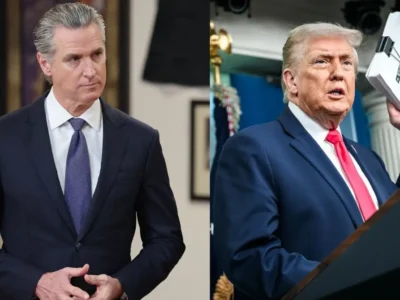The Changing Landscape of Climate Policy
Even under Trump, the U.S. was slowly lurching in the right direction. Biden needs to give the process a good strong push.
Barring a Democratic sweep in the Georgia runoffs, Biden will be facing a Republican Senate. But he also has a big advantage: The world has changed in some important ways that favor climate action.
The importance of these positive changes may have been obscured by some negative developments. Since Barack Obama left office, climate change has become even more urgent, and Trump’s presidency has proved a disaster for environmental policy. His Supreme Court appointments will make bold EPA action more difficult. Notably, however, renewable energy has thrived even under Trump.
Probably the most important single change has been the continued drop in the price of renewable energy and storage. That change has had several follow-on effects: The politics of clean energy have shifted as it has become harder to argue that climate action is unaffordable. Moreover, some believers in competitive markets have begun to support access to electricity markets by renewables, storage, and demand response. And the private sector has found clean energy appealing as the basic economics have improved. A clear example is the auto industry’s embrace of electric vehicles as the future of transportation.
Moreover, climate action has gained important allies. More than a few states have adopted ambitious targets for limiting or entirely eliminating carbon emissions. Renewable energy has gained traction in states where it used to be anathema. And cities across the country have adopted their own climate policies.
Important private sector interests have also enlisted in the cause of climate action. No doubt some of that is “greenwashing” that will not be accompanied by real action. But some companies are taking real steps toward reducing emissions. Even those that only give lip service to climate action are paying tribute to the broadening public appeal of clean energy and growing public concern about climate change.
Finally, the fossil fuel sector has grown weaker, even apart from the dire impact of the coronavirus on their sales. The U.S. coal industry is staggering, having suffered continued losses since Trump took office. The oil industry has consistently proved a bad investment and is increasingly considered risky by investors. Their political strength is not negligible, but neither is it as formidable as in the past.
None of this is to deny the indispensable role of the federal government. Only the federal government can coordinate the infrastructure buildout we need for new transmission, upgrading the grid to meet the challenges of a changing energy system, promoting offshore wind, and providing charging facilities across the country. The federal government is also needed to ensure climate action in laggard states, and to coordinate action between states to make the carbon transition smoother. And only the federal government can take on the next generation of climate challenges: decarbonizing industry, phasing out natural gas, and transforming the agricultural sector into a carbon sink. The federal government is also needed to provide leadership in the international sphere.
In pursuing these goals, Biden must find ways of making progress without strong support from Congress or a friendly Supreme Court. In terms of regulation under existing law, I’m one of many people who have argued that the best bet is to ramp up regulation of conventional pollutants, including coal ash and air pollutants. This would raise costs for fossil fuel generators. We also need disclosure requirements for firms about their climate policies; this could probably be accomplished by regulation under existing law. Finally, following the lead of a recent ruling by the Federal Energy Regulatory Commission, we can start moving toward putting a price on carbon in electric power markets.
The next round of climate policy will not be a replay of the Obama Administration’s admirable efforts. During a time of adversity, we have learned some lessons that may make climate action easier. And at the same time, action has become all the more urgent.
Reader Comments
2 Replies to “The Changing Landscape of Climate Policy”
Comments are closed.






The NRDC recommended that we “deepen and accelerate efforts to tackle climate change at the local, regional, and national levels.” Why haven’t we heard much from Al Gore who had been our most prominent spokesperson?
Now Trump has withdrawn from the Paris Agreement and we are leaderless at a time when we must be implementing solutions with the greatest sense of urgency.
Do we have any academic leader(s) who can inform, educate and motivate the public?
Prof. Farber, your silence confirms the undeniable fact that you don’t have any implementable solutions to protect the human race from global warming apocalypse and choose to hide behind Hofstadter’s Shield of Academic Purity instead.